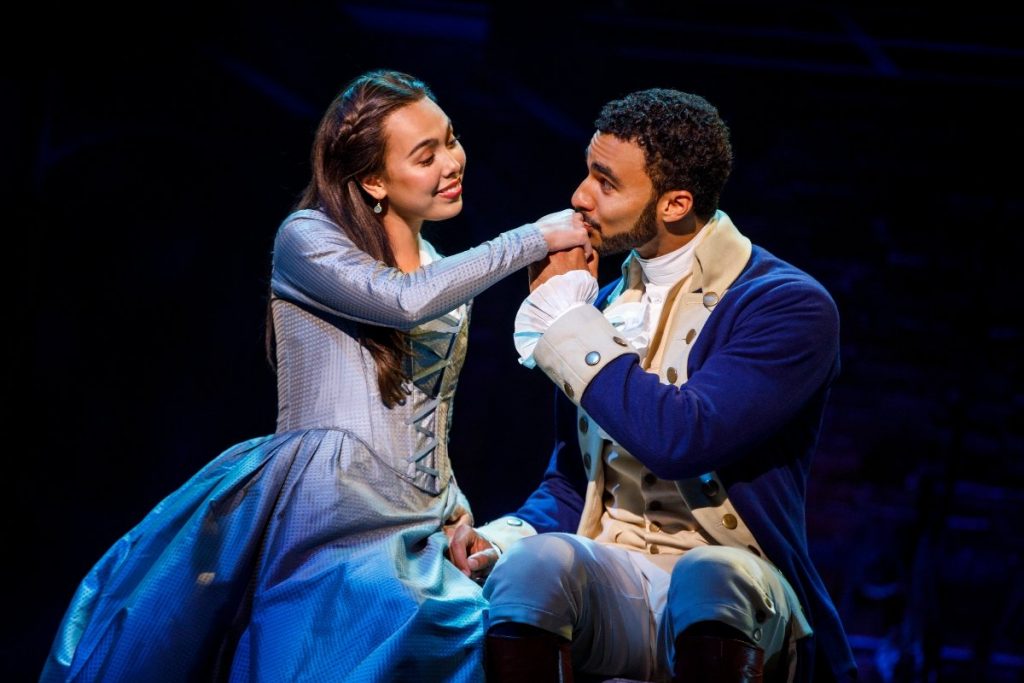By Magdalena Castillo

A few days ago, I was lucky enough to see Hamilton for the second time. It was equally as incredible as the first time, and since I already knew the lyrics to the songs and the story, I was able to approach this experience in a slightly different way. Instead of just hearing the lyrics, I understood them and thought about what they meant in the grand scheme of things. There was one part of the play in particular that I never really thought much about, but can’t stop thinking about it now: cheating.
Alexander Hamilton in the play (and the movie) is an inspirational leader of the people, a military commander, an economist, and so much more. On Broadway he is portrayed as a complicated American hero who made massive strides in American history. Impressive man he may be, but he wasn’t a good husband–unfaithful since the very beginning. Watching this again, I battled with the idea that while he was a good leader, he was a terrible husband. Alexander wasn’t the only one who was like this.
Martin Luther King Jr., Nelson Mandela, Mahatma Ghandi: three of the most famous men in history, known for making positive change and building peace in their communities. Ghandi was accused of exploiting young women but was a civil right’s leader. Nelson Mandela led his country from apartheid to a diverse democracy, had an affair before he married his famous Winnie. Martin Luther King Jr. was also a civil right’s leader but has allegedly had multiple affairs during his marriage as well. They were disloyal or in some ways (in the traditional sense) uncommitted family members, but their commitment to their country and their community is unparallelled.
So what does this mean for a peacebuilder? Does it mean anything at all? For all I know, I could be applying just four men’s stories to all peacebuilders’ lives and grossly misrepresenting them. But I feel like there has to be some truth to it. To be a peacebuilder, to me, means that you have to make choices and prioritize things. You can’t be selfish and don’t have time or energy to focus on the “small” things like family. These men had a country to take care of, a country that needed all their time and energy and so how could they prioritize being good partners…how could that be justified when that takes time, time that could be spent on making sustainable change on a larger scale?
Peacebuilding, as one of my classmates this summer put it, is not a romantic career. You aren’t perfect and pure, you make mistakes, and you must sometimes abandon things that you love if it means getting the job done. At the end of the play, I can’t say that I made up my mind whether I should hate Hamilton for being unfaithful or if I should still love him for helping this country grow. All I felt comfortable saying leaving that auditorium was that peacebuilding or conflict resolution or just making decisions on behalf of the larger population is hard, but if you do it with all the passion in your body, you’re legacy will live on through the well-being and stories of the people.


